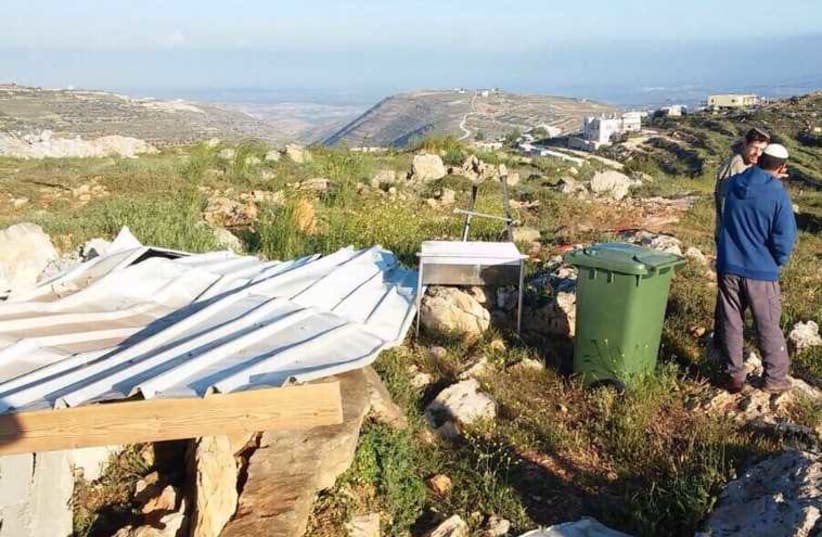IDF destroys 4 structures in W. Bank settler outpost erected to honor 3 slain teens
Attorney representing settlement disputed the Rabbis for Human Rights contention that the land belonged to private Palestinians, arguing that the structures were on state land.
